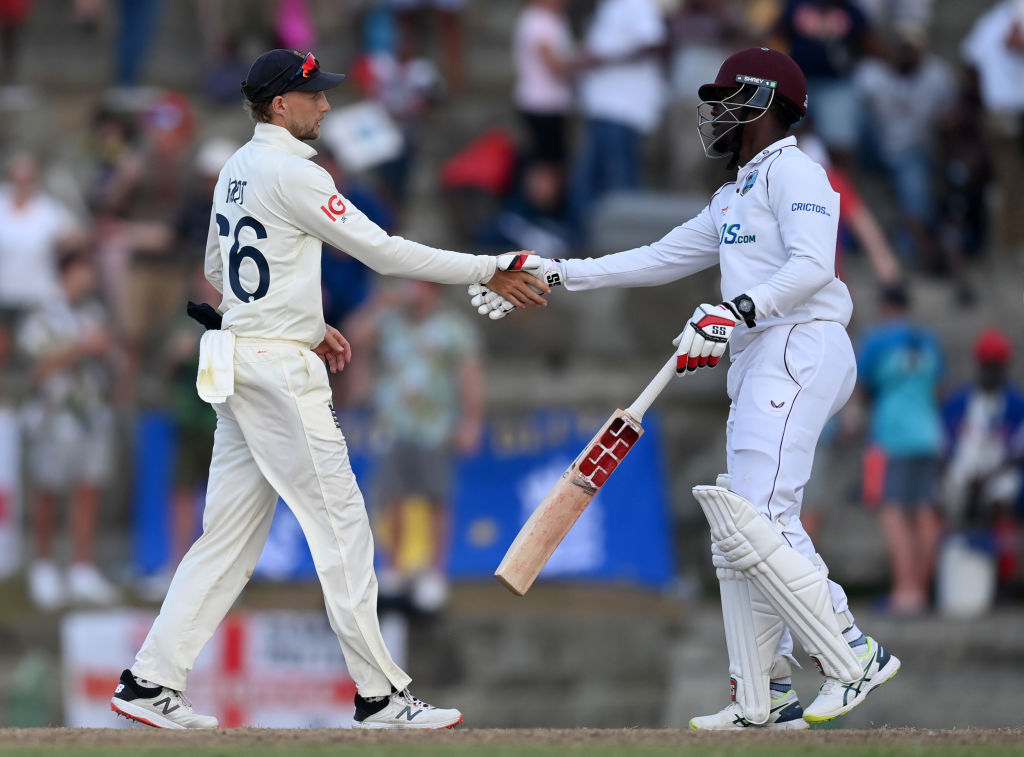West Indies result positive step for England but they need more than draws

Well it wasn’t a loss, but if England had fallen in the opening Test in the West Indies it would have been a surprise mark on their record card.
Other than their reverse this winter in the opening Test of the Ashes, England haven’t actually suffered defeat in an opening Test of an away series since they were beaten in late 2019 by South Africa.
Still, the draw against an exciting West Indies team in Antigua on Saturday would have been a welcome relief for captain Joe Root, interim coach Paul Collingwood and the wider squad.
England have won just two series in the West Indies since 1968: the first in the era of Sir Geoffrey Boycott and John Edrich, and the second in the batting prime of Graham Thorpe.
So beginning with a draw in Antigua is a solid enough result, but there will be elements of the game which will require further improvement.
Batting
In what felt like a disturbing flashback to the winter in Australia, three of the four knocks from the two openers – Alex Lees and Zak Crawley – failed to reach double figures, the outlier being Crawley’s second innings score of 121.
It’s an area of the game which is so difficult to improve on in a single innings or two, and Lees will need time to settle into the position if he’s the chosen long-term option, but it’s a worrying sight to see England look so vulnerable.
It can’t foster a positive mental attitude, either, knowing there’s a marked history of failure in the position.
That said, there was a steady flow of runs throughout the Test, albeit tainted by poor dismissals in multiple cases.
This is the first time England have had three individual knocks of over 100 in a Test since the first match in India in 2016 – when Moeen Ali, Joe Root, Ben Stokes and Alastair Cook all went past the century mark.
England bowling
It took England 227.4 overs to get their 14 wickets in Antigua while the West Indies achieved their 16 wickets in 188.5 overs.
England are now likely to be without bowler Mark Wood as the paceman looked to have injured himself mid-way through the Test and will need to rely on their depth throughout the upcoming matches – they used seven bowlers in this Test.
It further begs the question as to why Stuart Broad and Jimmy Anderson were left behind. Development or rest?
If the decision was entirely a rest one then Jack Leach, too, should have been given time off. If it was to develop others then England should have been more ambitious.
England didn’t lose, and that’s important. But it is another Test in the Caribbean where the home side have frustrated the visitors.
Joe Root’s side aren’t out of this, far from it, but they must attack the second Test this week with bat and ball to stand a chance.